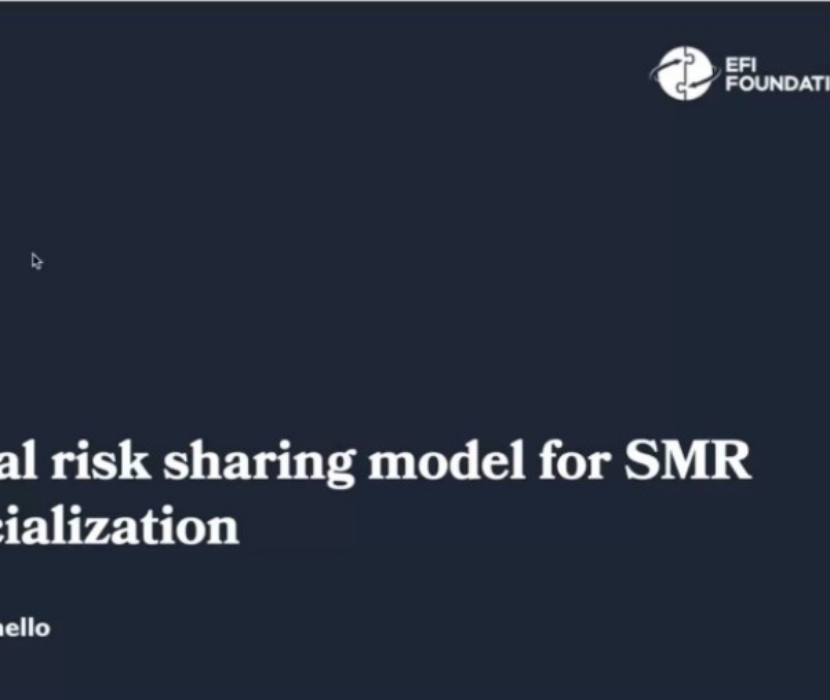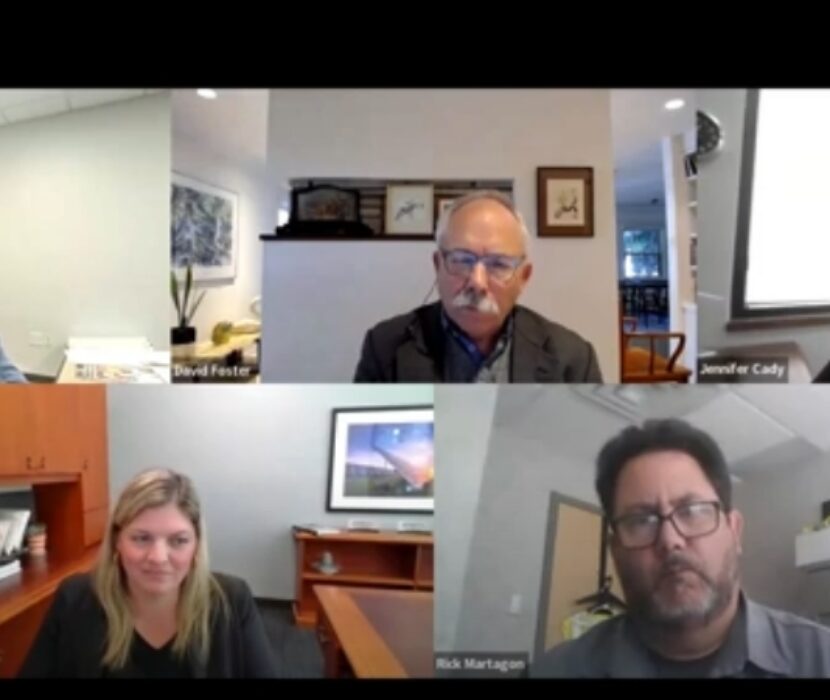
While not physically present in Glasgow, Scotland, for negotiations at the 26th Conference of the Parties (COP) — the annual international climate summit — EFI CEO and Founder Ernest Moniz provided expert guidance on industrial clusters and hydrogen market formation in two COP events hosted by Accenture. Moniz also commented on COP’s success during a podcast episode with S&P Global.
On November 8, Moniz spoke at an event hosted by Accenture titled, “Transitioning Industrial Clusters Towards Net-Zero,” in which he outlined key findings from EFI’s work on the topic. He reminded the audience of the cumulative nature of carbon dioxide, stressing the importance of net-zero goals — like the Biden Administration’s goal of 50% emissions reductions by 2030, and the integral role of net-zero industrial clusters. Developing key technology with these hubs, like carbon capture, utilization, and sequestration (CCUS), will further aid net-zero pathways, providing avenues for firm power (i.e., immediately dispatchable power), fuel, and negative carbon technology — all critical components of meeting net-zero ambitions. He expanded on EFI’s findings that hubs are key to early market development for hydrogen and CCUS in the U.S., noting EFI’s focus on four regions for potential hubs, including the Ohio River Valley, the Carolinas, and the Texas Gulf Coast. Due to varying characteristics of these regions, each would have a different hub focus (e.g., hydrogen) and create different stakeholders, key players for ensuring these net-zero infrastructure projects succeed. Lastly, he highlighted the need for more policy and regulation — noting the $8 billion reserved for blue and green hydrogen hubs in the infrastructure bill — as well as coalitions to drive net-zero initiatives.
The next day, Moniz sat down with senior reporter Taylor Kuykendall for an episode of S&P’s “Market Intelligence Live” to discuss energy investments and significant developments and commitments that were made at COP26.
If all of these are implemented, it would materially lower the kind of temperature rise that we are looking at.
Ernest Moniz
On the heels of the first week of COP26, Moniz celebrated some of the outcomes at the time of filming, like methane emissions reduction pledges, stopping deforestation, the Mark Carney Net-Zero Banking Alliance, and multiple accelerated climate pledges by specific countries, including China and India. He explained that “If all of these are implemented, it would materially lower the kind of temperature rise that we are looking at,” adding that “they all have caveats.” For example, the methane emissions reduction pledge was not signed by the largest methane emissions producers. Given the global unity necessary for tackling climate change, Moniz highlighted that “we are going to have to differentiate countries at different levels of development in how they approach deep decarbonization.” He also noted that going into this climate summit, the world was facing 2.7 degrees of warming due to lagging progress, including by countries committed to the Paris Agreement. If these new outcomes are implemented, the world could lower this to 2 degrees of warming and see a more hopeful future.
Professor Moniz pointed to three areas that investors should pay attention to in the climate discussion. The first is on the electricity side: he named firm power, power that can be dispatched whenever you need it. The second is nuclear: Moniz said, “on the nuclear side, we’ve had more innovation in this last decade than ever before.” Moniz noted that while nuclear fusion had been flying under the radar for some time, as of late, privately funded companies have made progress on fusion. He said the scientific case for fusion as an energy source will be answered within this decade. Lastly, we are going to need low-carbon fuels and carbon dioxide removal. The fuel that Moniz highlighted as one with the most discussion today is hydrogen. Hydrogen can address many sectors’ needs, similar to natural gas. Listen to the full podcast for more details on Professor Moniz’s thoughts on COP26, the Paris agreement, and climate-related issues.
Later in the week, on November 11, Moniz opened Accenture’s COP event titled, “The Role of Hydrogen in the Energy Transition,” with a keynote address focused on framing the discussion. He posed questions asking how we can realize a global hydrogen economy and noted the importance of industrial hubs as a national approach. The event focused on Japan as a model for launching a new energy market since it has been the driver of the liquid national gas (LNG) market. For a hydrogen market, however, “we certainly can’t wait forty or fifty years, as we did with LNG,” Moniz urged. Important differences exist between the two markets, namely in product, transport, and price point.
— Angie Kaufman & Sonia Velazquez
(Share this post with others.)




